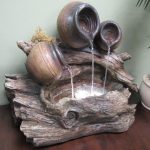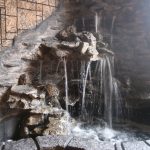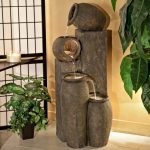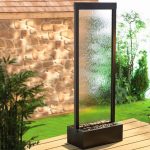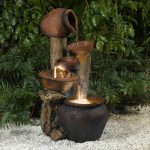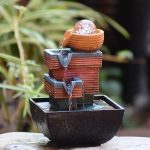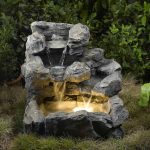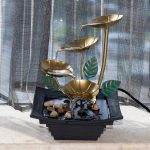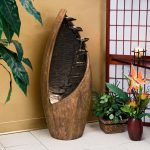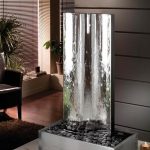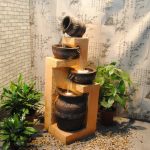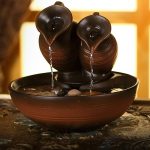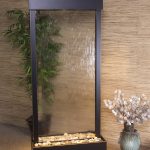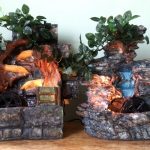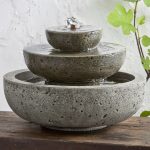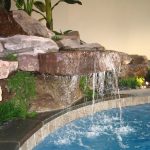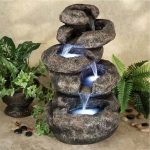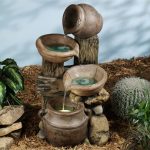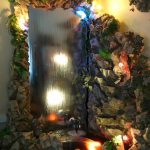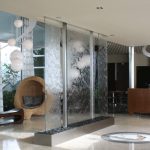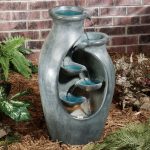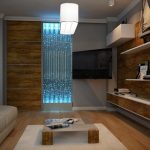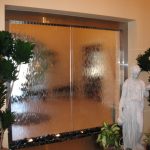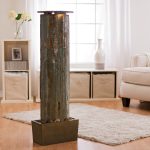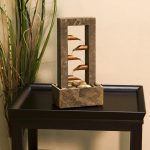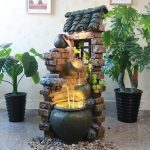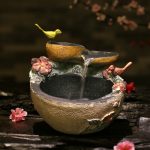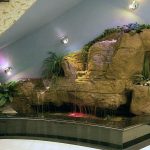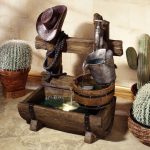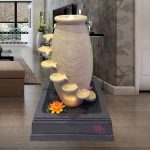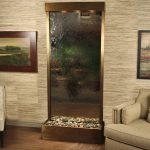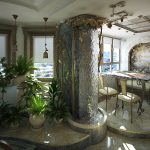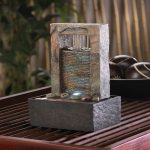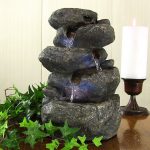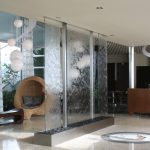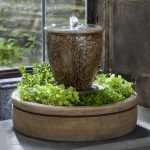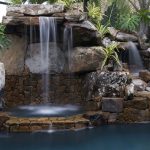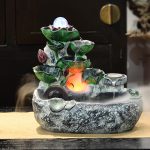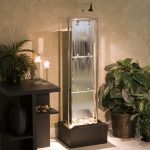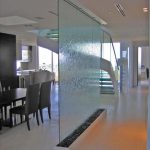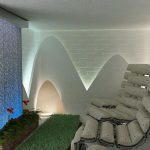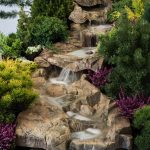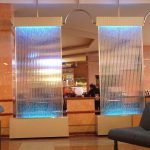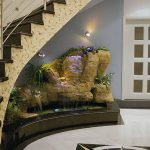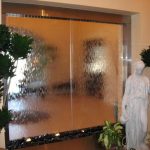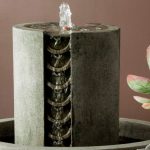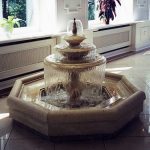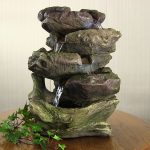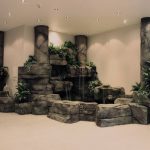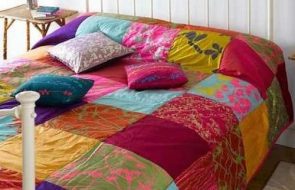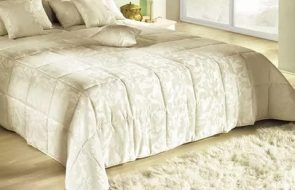Fountains, waterfalls and other natural water sources attract attention and create positive emotions. Such a design can be purchased in specialized stores or made independently.
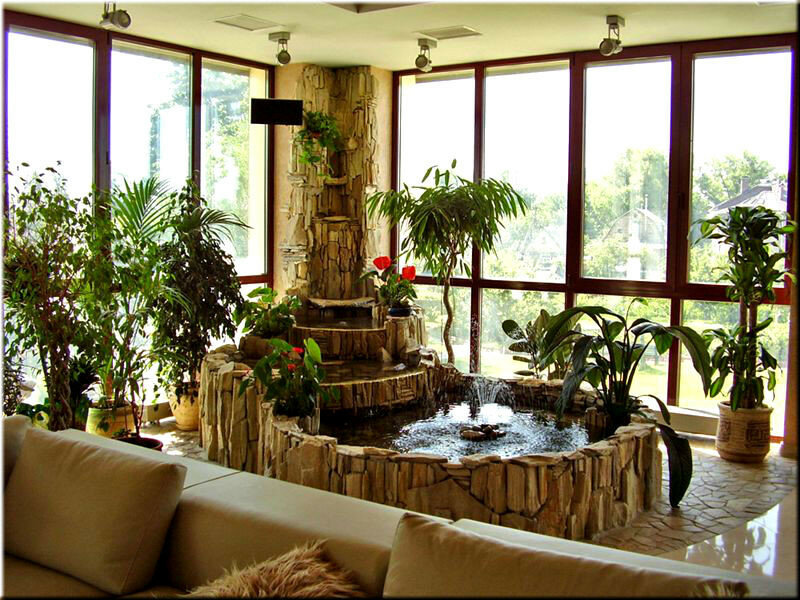
Content
Construction of a fountain
Depending on the conditions or personal preferences, the fountain can be with or without a pump.
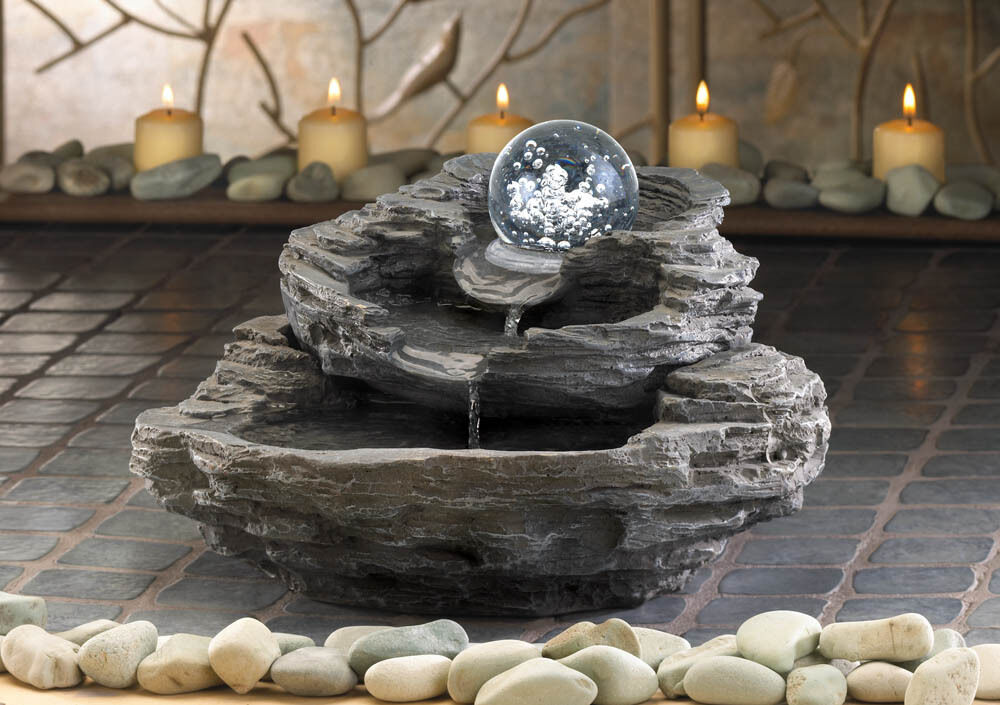
Fountain pumps
A special pump is needed for a decorative water source. This equipment is very easy to operate and reliable. It needs to be installed and a test run is done. These steps are described in detail in the instructions. Then you can finally connect and start the fountain.
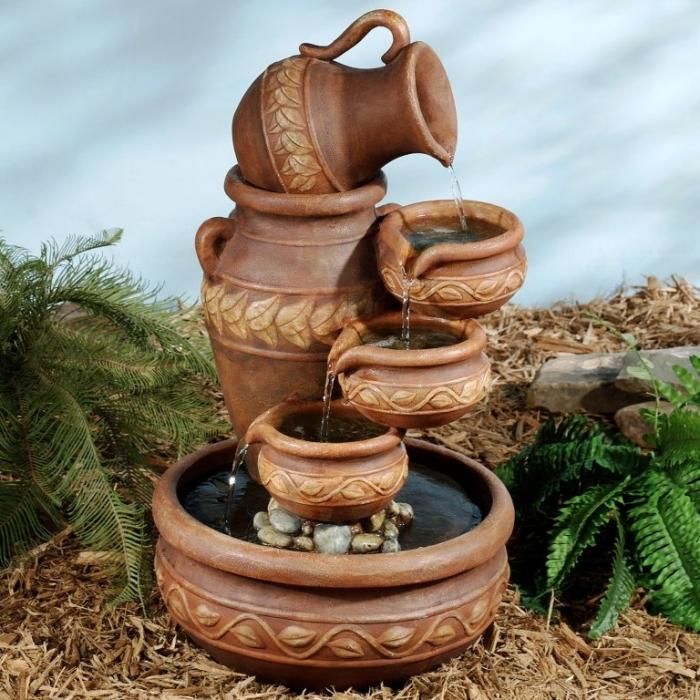
Pumps are sold in different capacities and allow for different water pressures. In addition, they allow for the creation of interesting water forms.
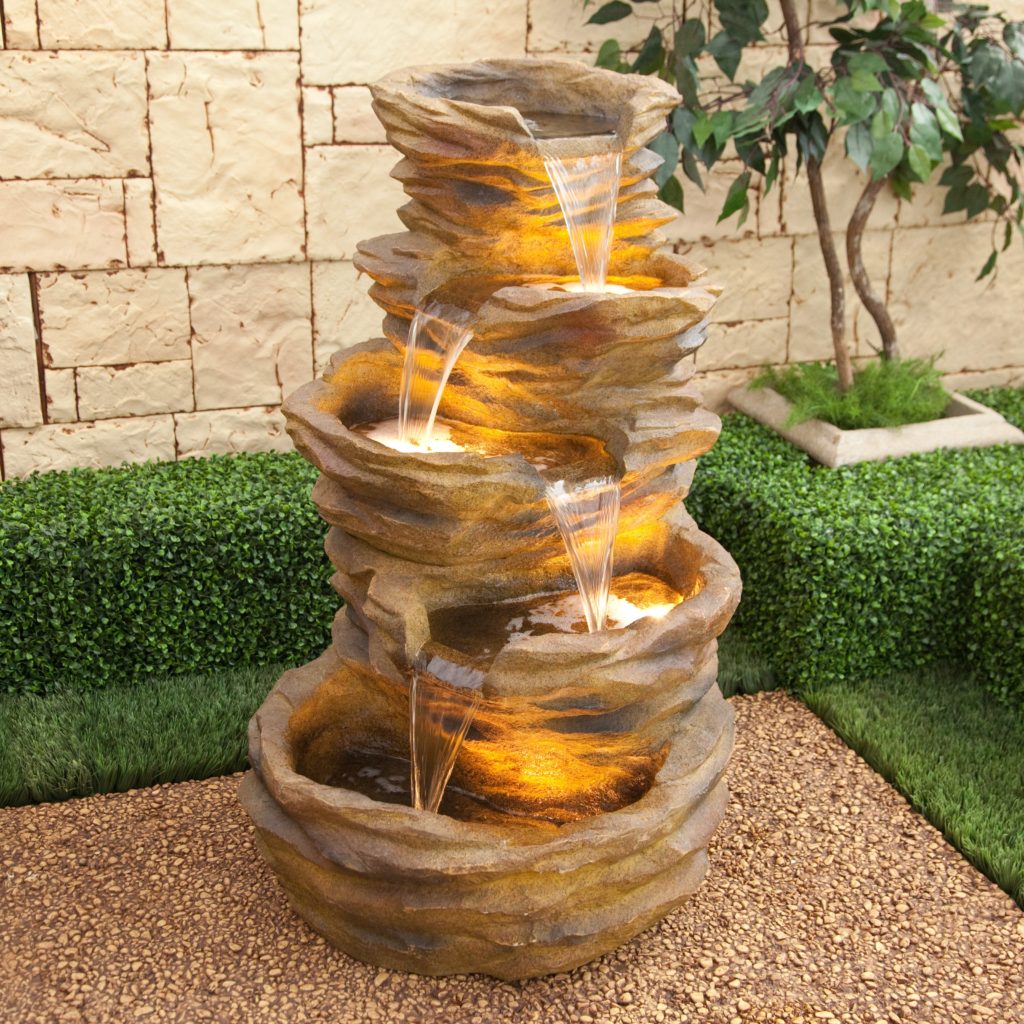
Mains-powered pumps are used more often. They are affordable and durable. In general, any brand of submersible pump will do. You just need to think about installing a filter and a transformer.
Without pump
If desired, the fountain can be constructed without a pump. Only in this case will the structure be open. To create it, a pipe is led to the fountain location and a tip is installed on it to regulate the direction and power of the stream.
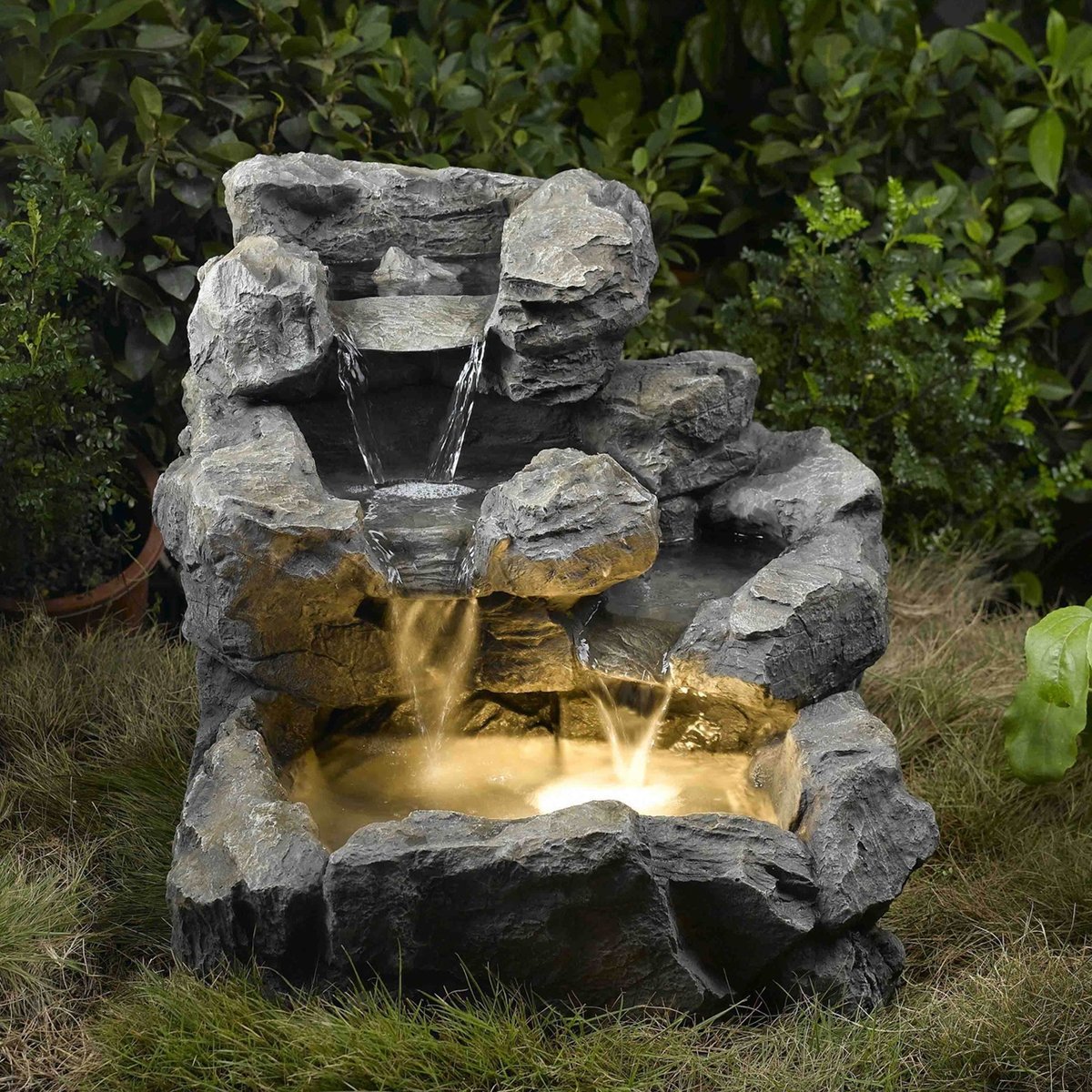
Indoor fountain for apartment
Fountains are classified as follows:
- Waterfalls. The most popular option. Water flows beautifully from top to bottom.
- Cascade. The water also goes down, only it passes through several "thresholds".
- The classic version. A jet of water shooting upwards. Not the most suitable design for indoor placement.
- Designs in the form of a stream or a small lake. This model is ideal for a country house.
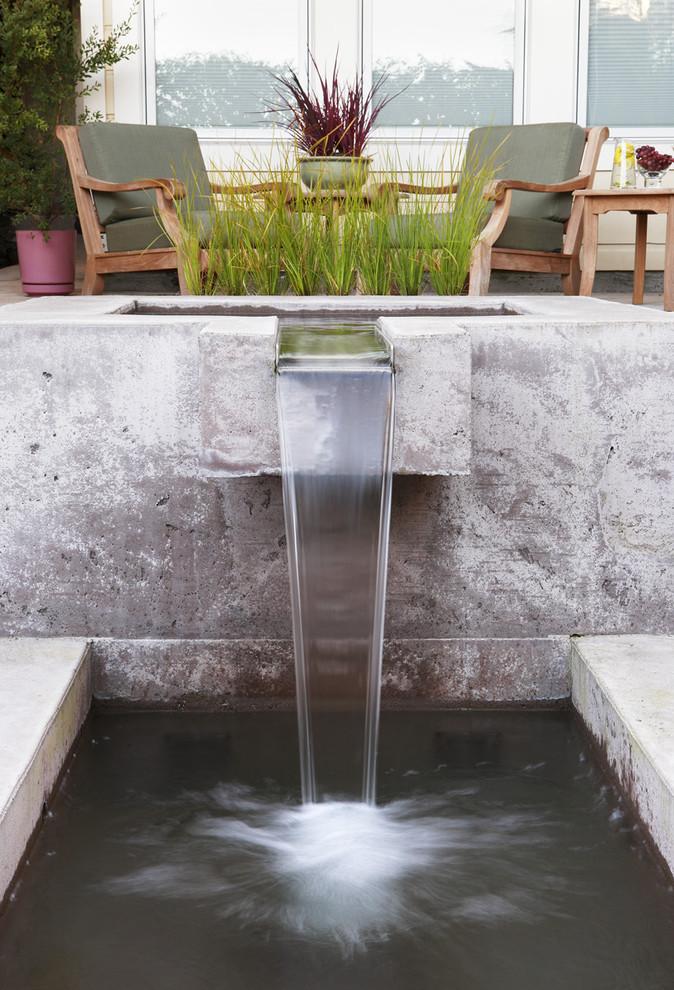
The shops offer a sufficient range of indoor and outdoor decorative compositions of different designs and shapes. If desired, you can create a fountain with your own hands. In this case, you will definitely guess the style of the design and the size.
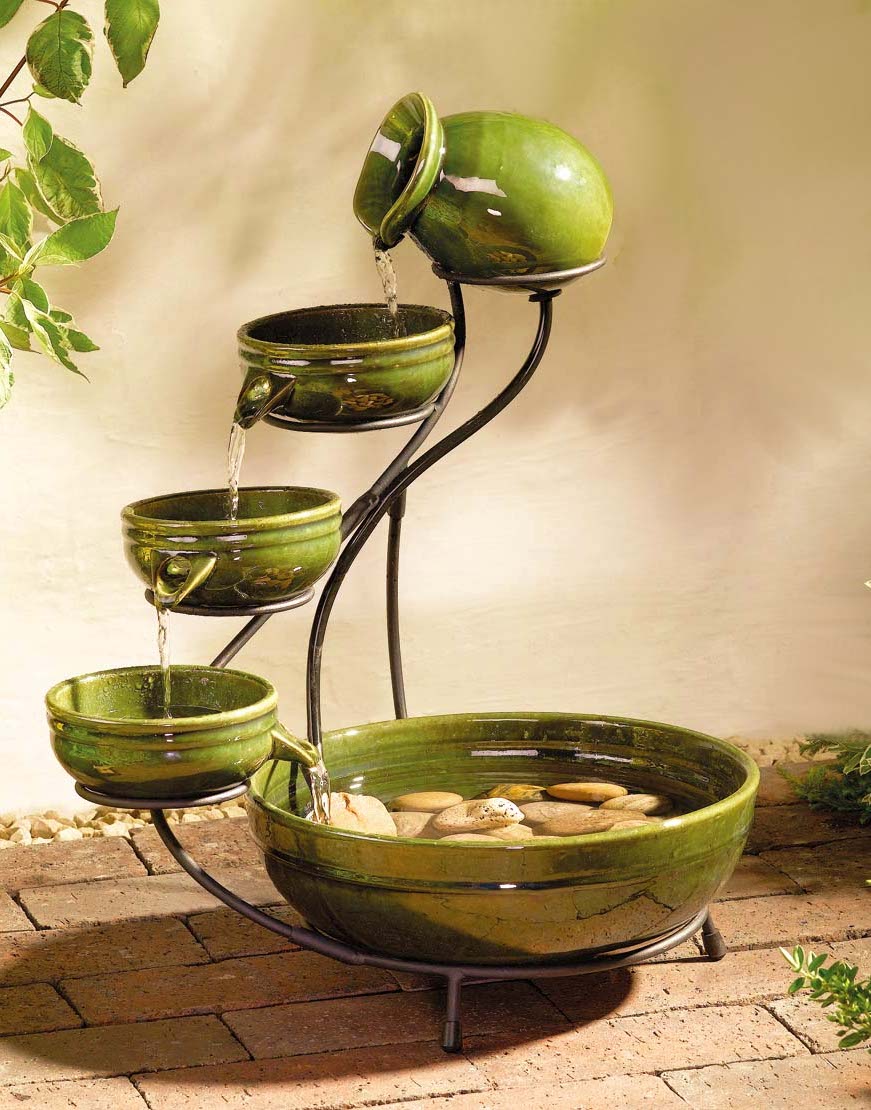
Choosing the location of an indoor fountain
We decide on the place of installation of the future decorative element of the interior. The size of the fountain should be proportional to the size of the room. A large structure will look, at the very least, out of place in a small room, and a tiny fountain will be lost in a spacious hall.
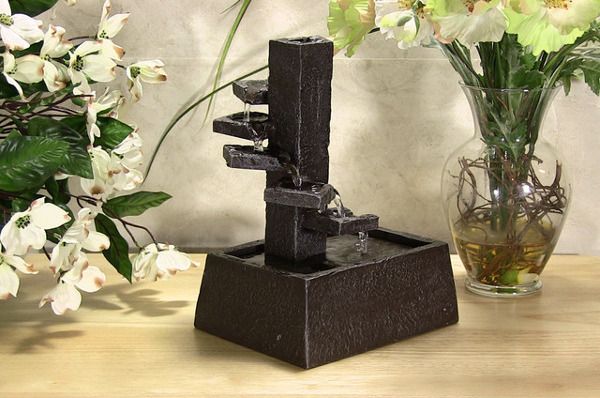
If there are pets or small children in the house, the fountain should be installed in a place inaccessible to them. And since the structure increases humidity, it should not be placed close to furniture made of natural wood.
Fountains are divided into floor, wall or tabletop depending on their installation location.
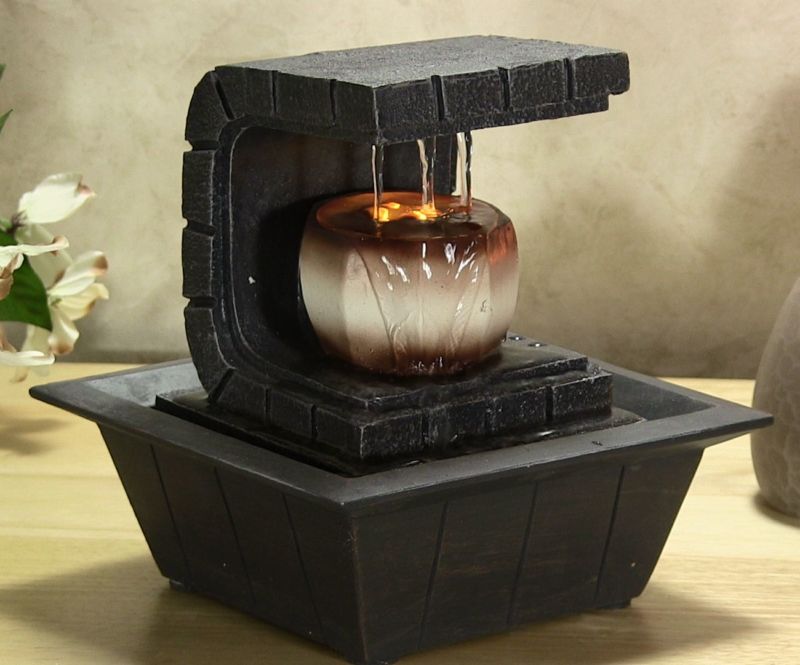
Necessary materials
- A water container as the basis for the future fountain;
- Hose length 10 – 15 cm;
- Large, thick plastic bag;
- Waterproof adhesive;
- Aquarium pump.
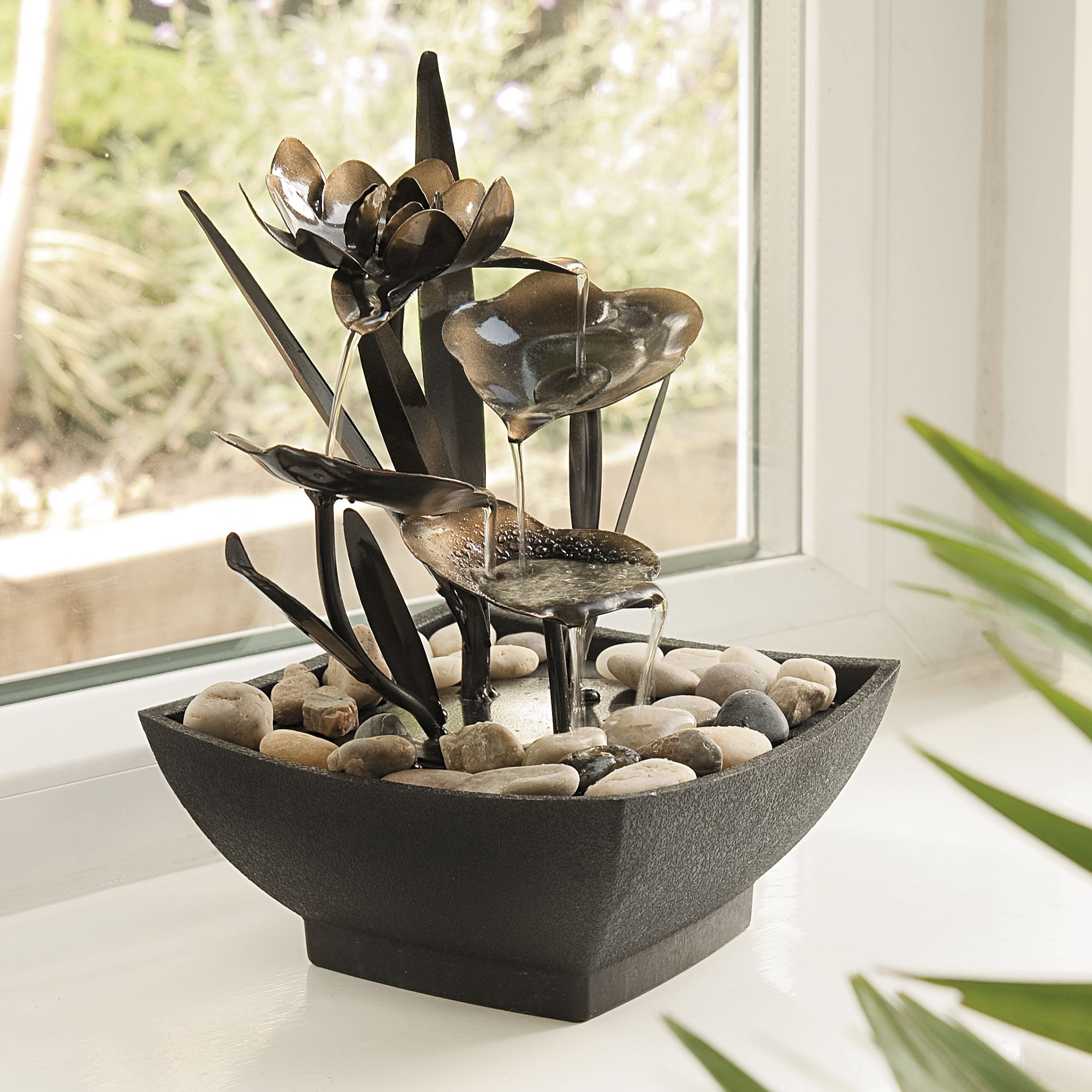
Fountain lighting
Thanks to LEDs, it is easy to make a fountain backlight. For this, you need waterproof lamps or special LED strips. It is necessary to install a converter so that the lamps are “powered” by 12V or 24V. In some cases, backlighting is installed that runs on solar batteries.
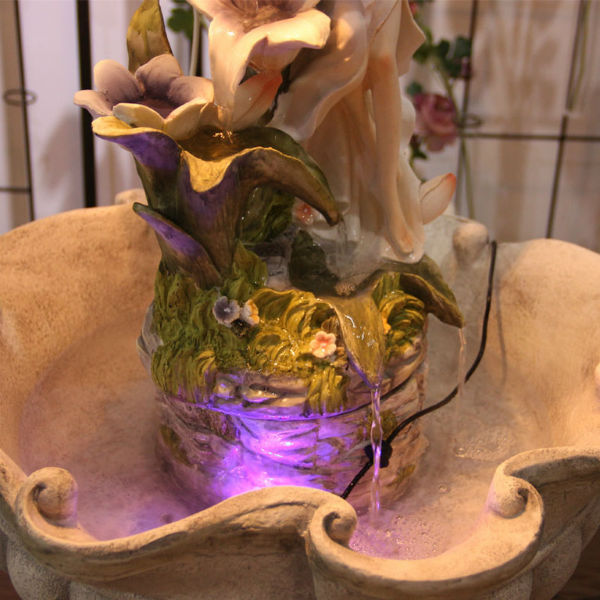
A clock and a barometer are also built into it, so the item is not only creative, but also functional.
Decor options
In this area, your imagination sets the rules. Some people prefer a decorative element without unnecessary decorations. Some, on the contrary, strive to make a work of art out of the fountain. And some simply use objects that are at hand.
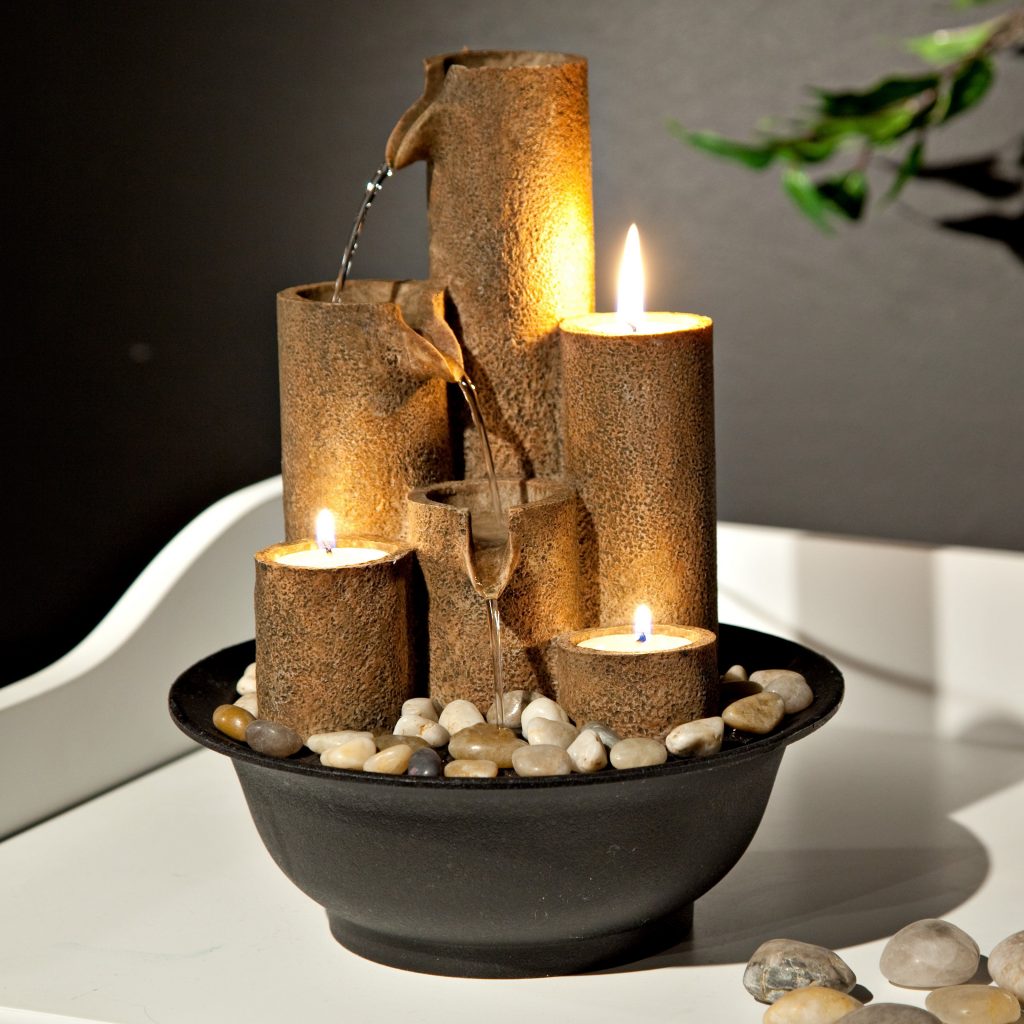
A fountain for the home is decorated with ceramic jugs, figurines, shells, and even semi-precious stones. Sea pebbles and imitation pearls look very beautiful. The design is complemented with branches of artificial plants and flowers. Sometimes candles are added to the composition: water and fire are a very effective combination.
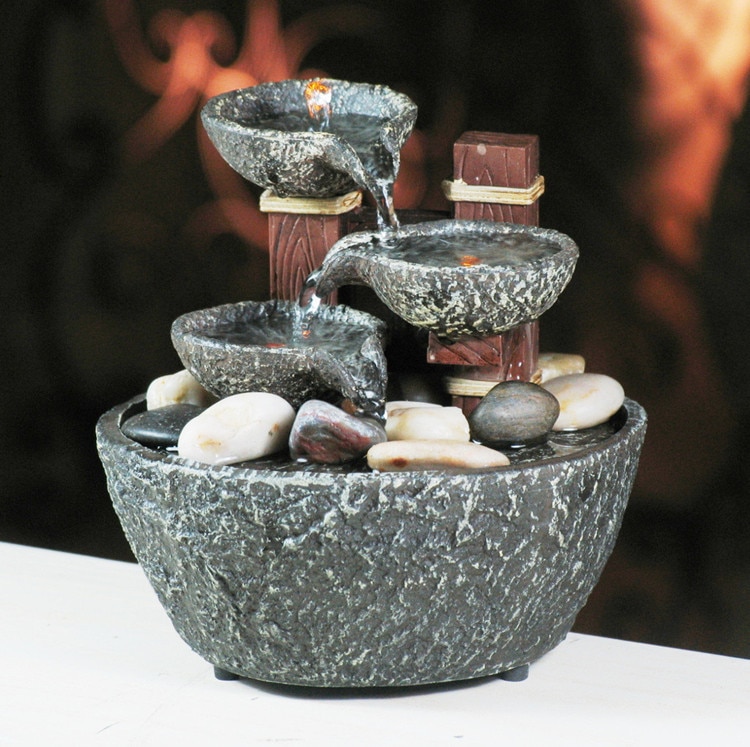
How to make a fountain: diagrams of fountains of different configurations
A small fountain
First, we select a container in which the composition will be located, check its integrity. Then we take a pump, attach a regular hose to it. We attach the structure to the bottom of the container and fix it. After that, we fill the surface with stones, snags or other decorative composition. This must be done so that the pump and tube are not noticeable.
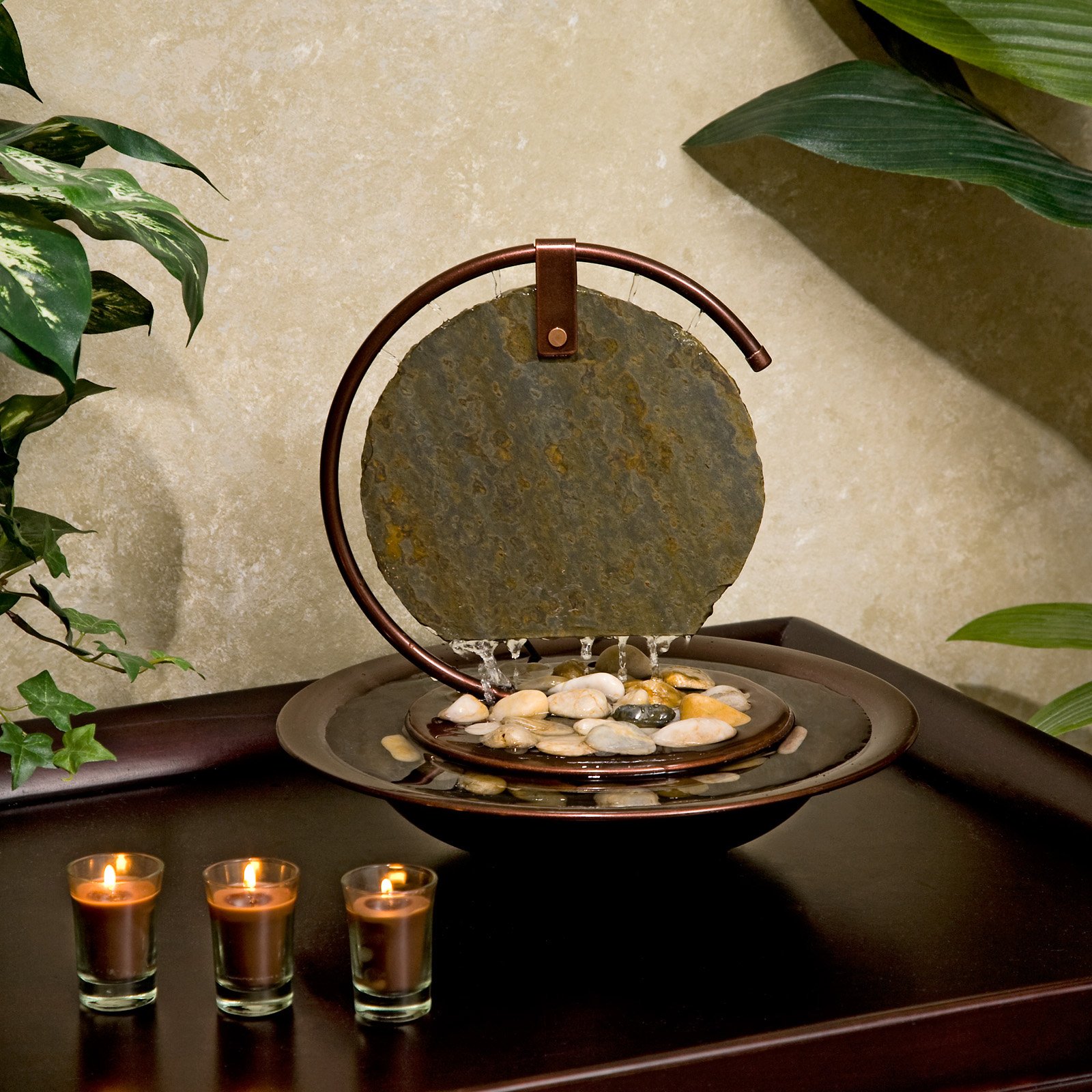
Often, a figurine, such as a frog, is installed directly on the pipe from which the water flows. The structure can be combined in such a way that the water flows from the frog's mouth. To do this, you need to choose a decorative element of the correct shape and in the right pose, and then drill a hole in it and place the hose inside.
To ensure that the structure is as airtight as possible, special water-resistant substances are used to glue the parts. And the power of the water flow is regulated using a pump.
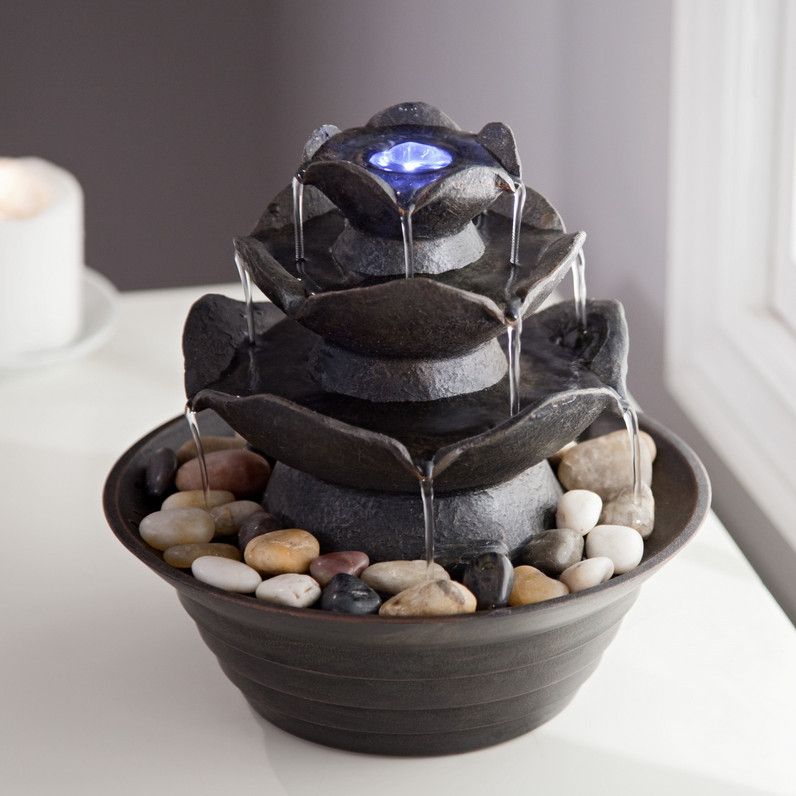
Desktop
Such a mini fountain can decorate a table, a nightstand and even a windowsill. It requires very little space.
This model is very similar in design to the previous one, only it uses a low-power pump. A large bowl is taken as a base, a pump, a hose, and then decorative elements are placed in it.
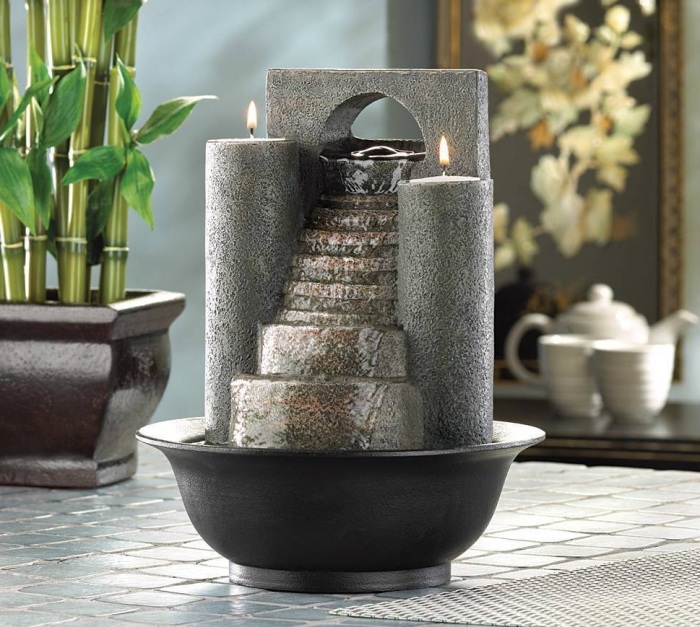
A pump with a hose is installed in the bowl, the hose is passed through a bamboo tube. On the opposite side, "live" bamboo is placed. The structure is fixed in the bowl with pebbles. Fill with water.
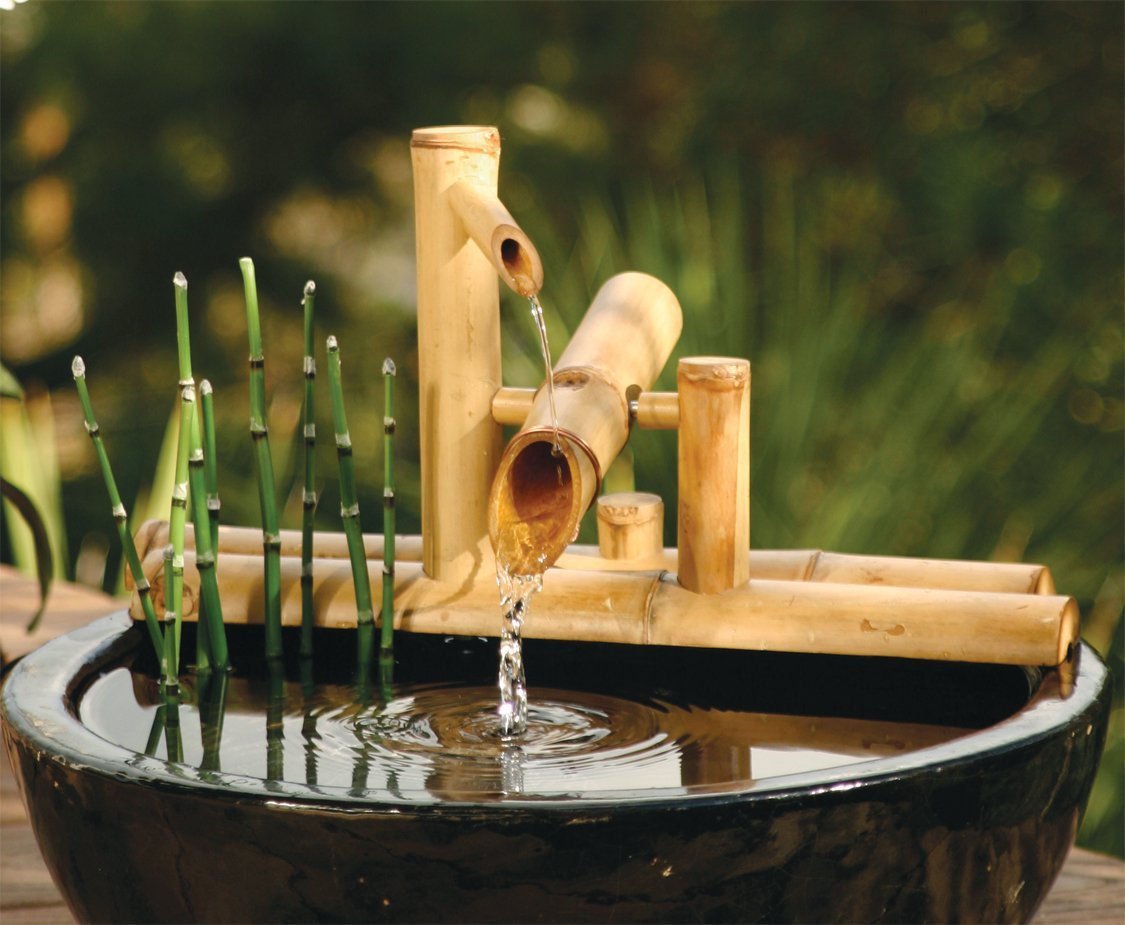
The result is a home composition with a fountain. Bamboo tubes, from which water flows, are adjacent to living bamboo branches. A very effective option.
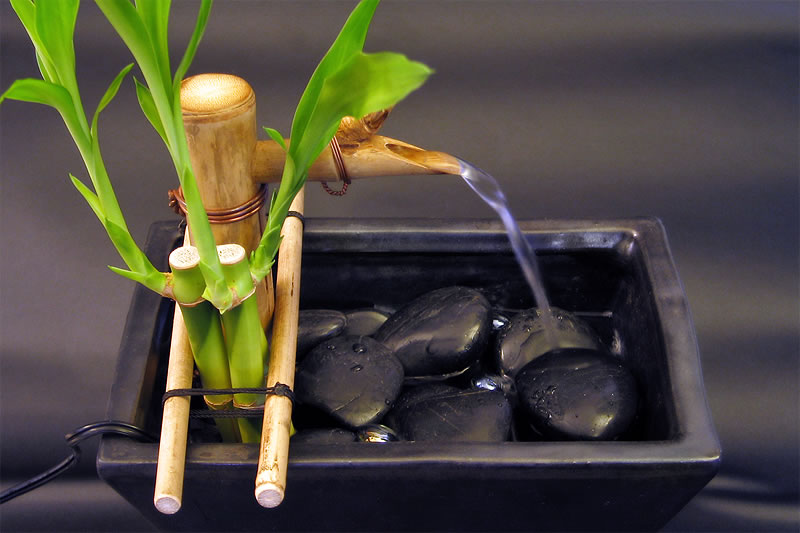
The design is easy to operate and does not require much effort. You only need to check the water level. Since the water evaporates, it needs to be topped up to a certain level about once a week.
Pebble fountain
Such compositions are also called dry. The thing is that the main bowl of these structures is walled up in the ground. And only the source of water and the dry surface, which is usually decorated with pebbles, placed on a special net covering the water reservoir, remain visible to the eye.
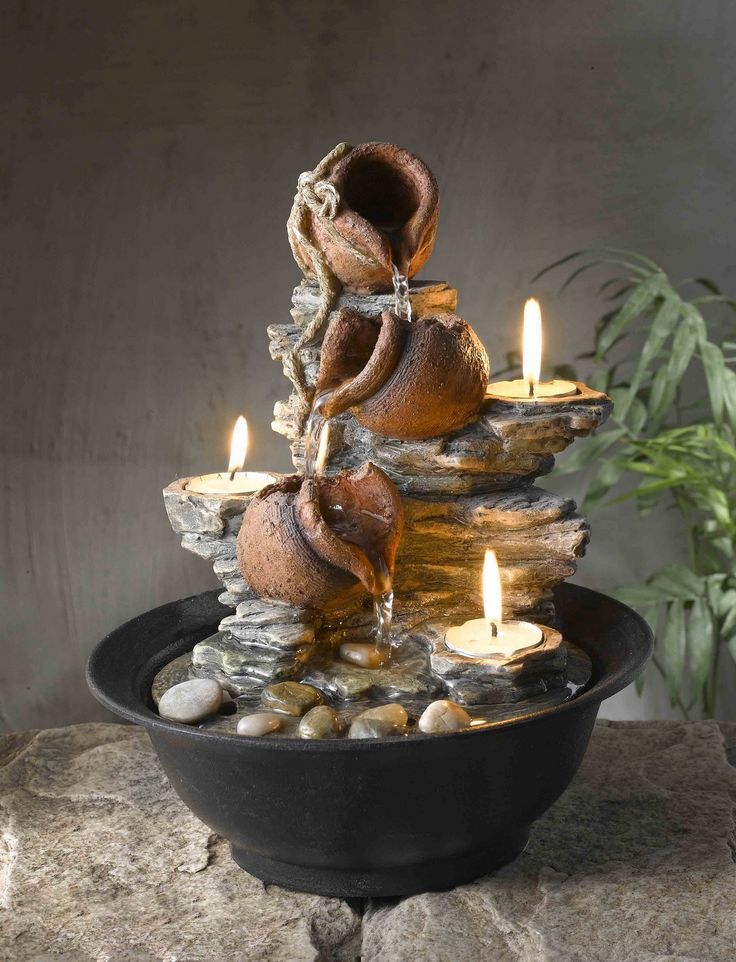
The diagram of a pebble fountain looks like this.
To create a fountain, a container with water is placed in the pit. Its volume should be sufficient for the water to flow back. A pump is installed in the container, covered with a fine mesh (metal or plastic). This will protect against debris getting into the water tank. A structure made of thick wire is laid on top of the fine mesh, on which pebbles are placed. If the fountain is to be decorated with slabs, not pebbles, then a beam should be laid instead of the second layer of mesh.
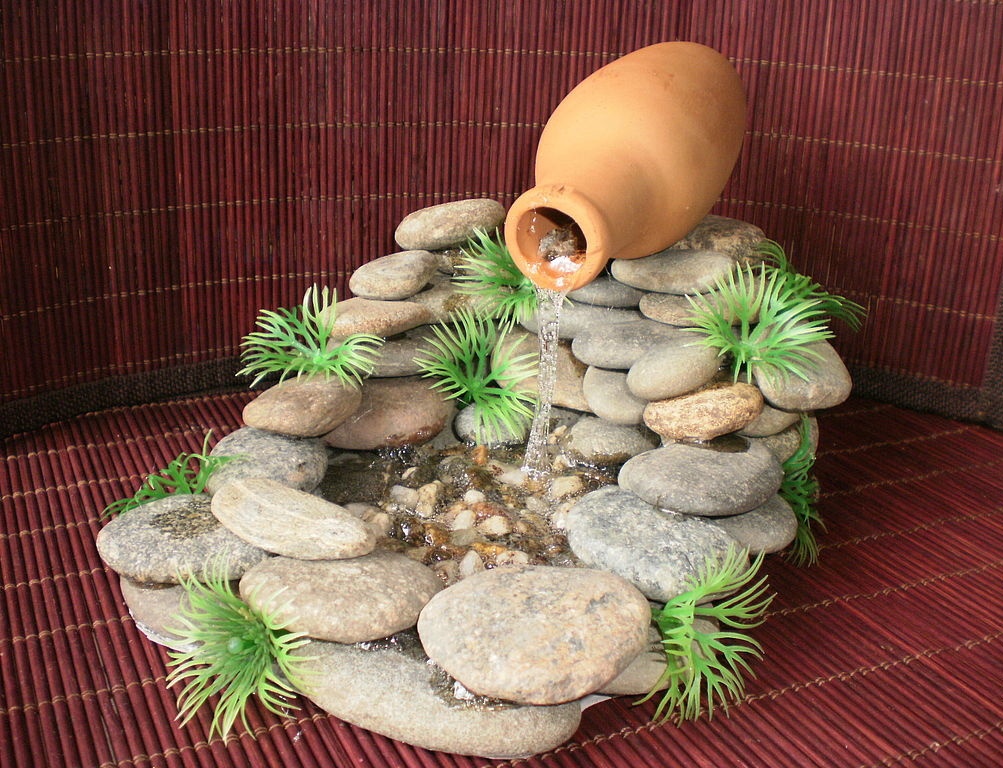
This scheme allows you to implement interesting and unusual ideas. Even old garden tools will look stylish if you use them correctly.
And this pebble option is truly universal.
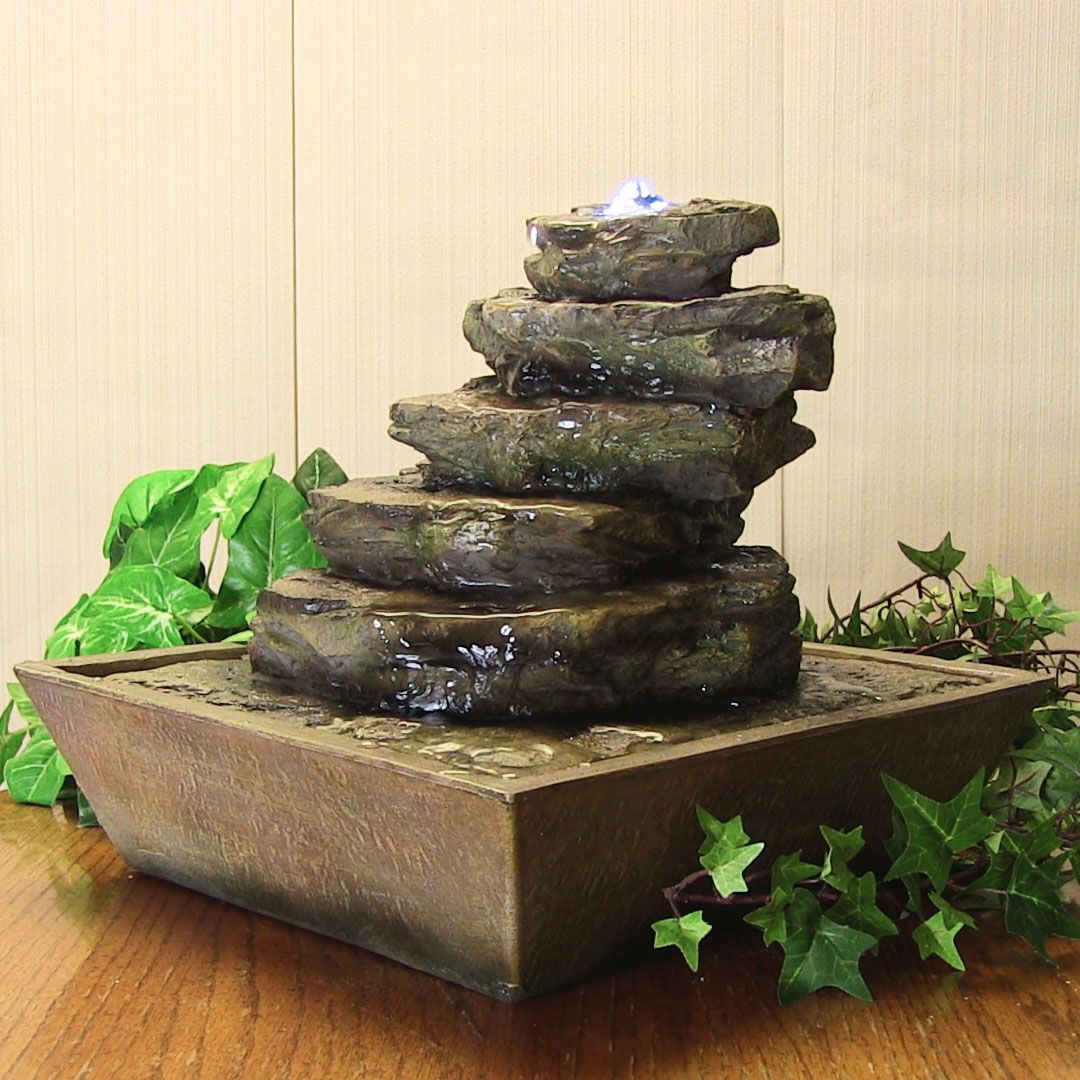
By the wall
The composition by the wall is a classic of the genre. Water runs from the wall, flowing into a large bowl. A pump is installed in the bowl and then everything follows the established pattern.
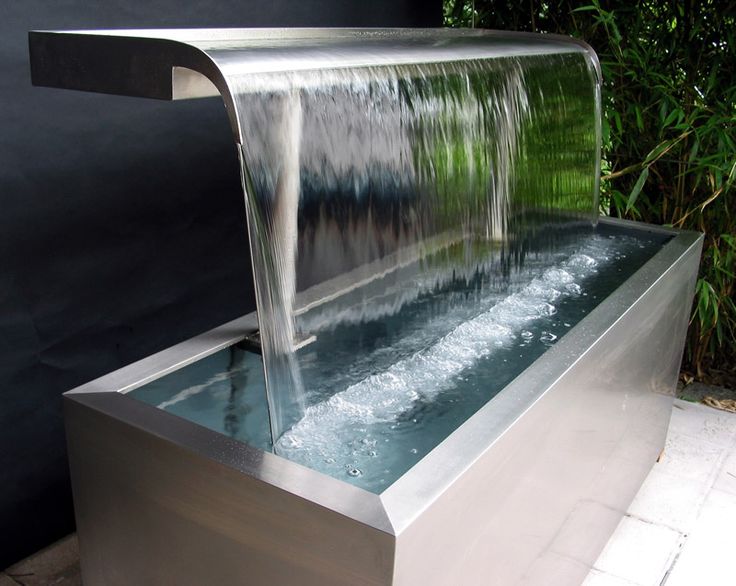
Important! When creating a structure near a wall, it is necessary to think about installing waterproofing. Even if water does not flow directly down the wall, it will not be possible to protect the surface from splashes. Humidity will always be high.
Fountain cascade
This fountain model is actively used both at home and outdoors. It looks very impressive. Water flows from one container to another, and the number of containers used is not limited.
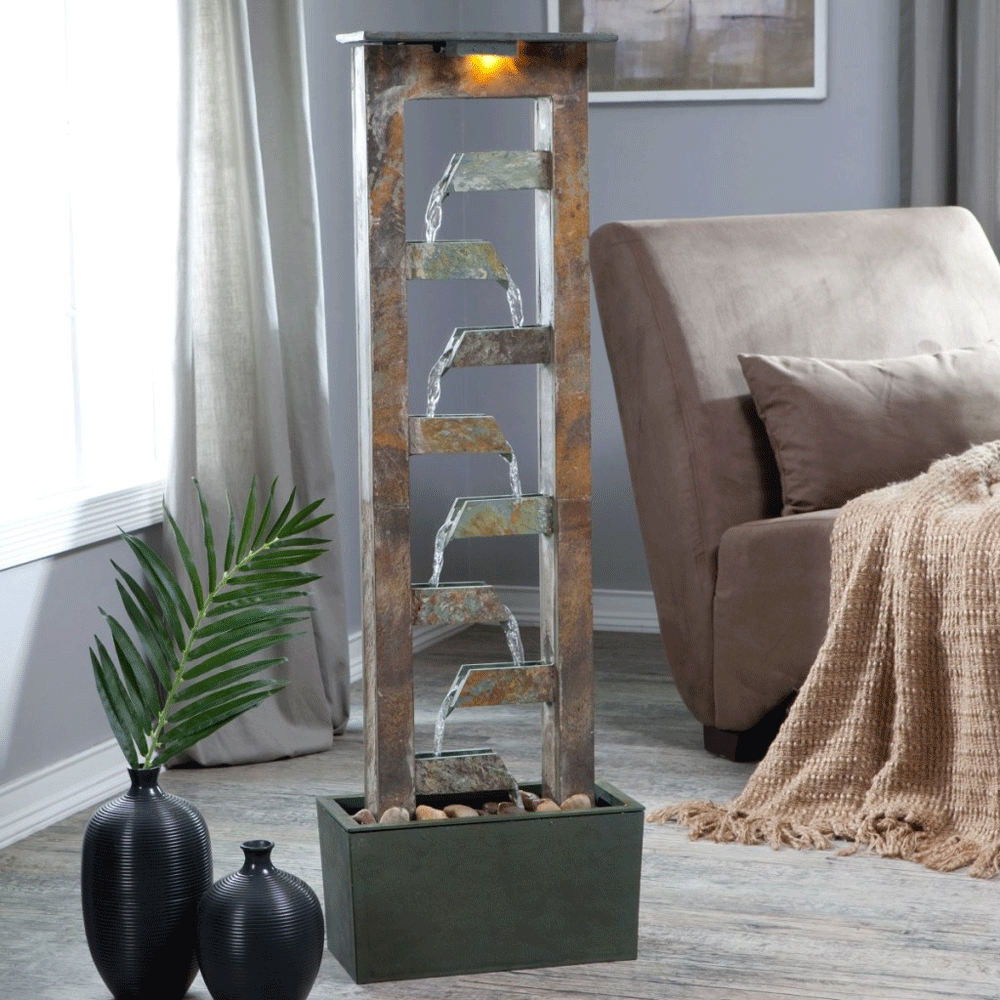
The principle of the design is simple. A large container (bowl or reservoir) with water is placed at the very bottom. A pump is installed there. Water flows through a hose into the upper bowl, and then flows down to the lower containers.
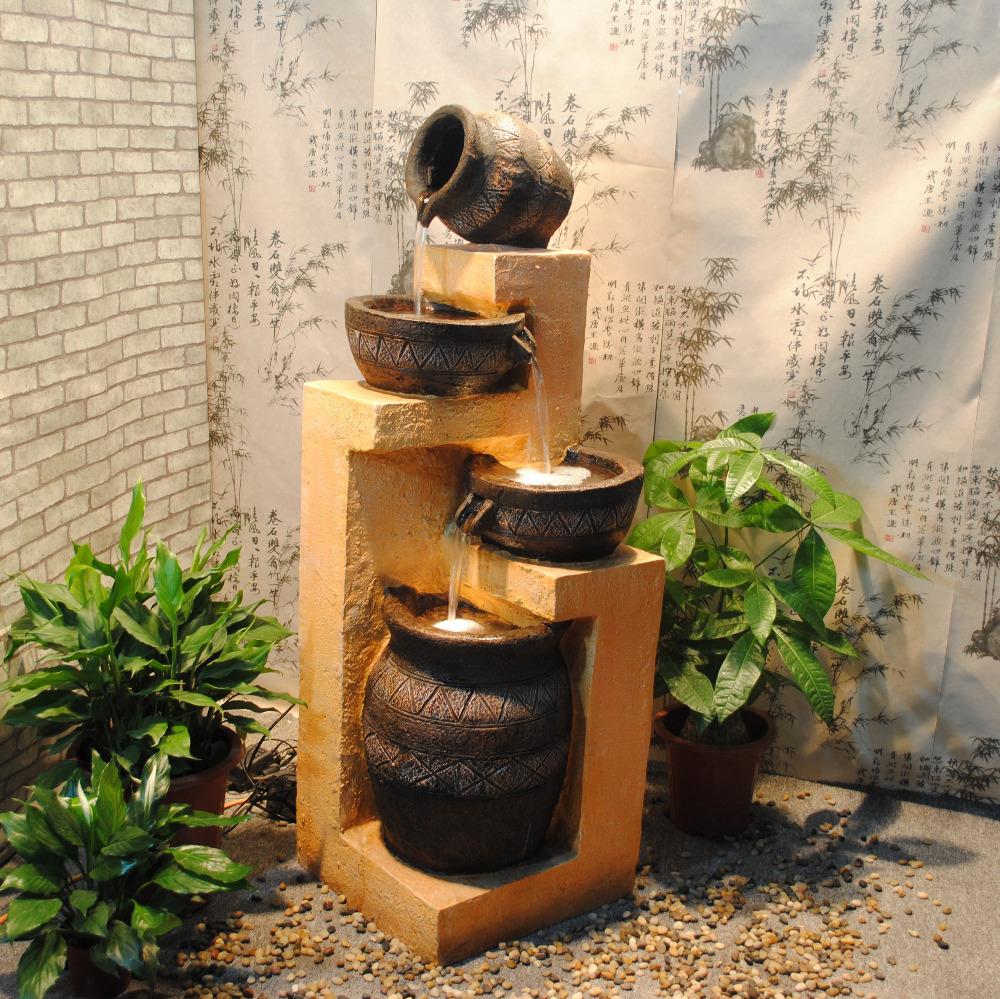
Old watering cans, buckets or even garden carts are quite suitable as containers in a country house – they look very creative.
If this fountain model is created with your own hands for a room, ceramic bowls or large sea shells can be used as reservoirs.
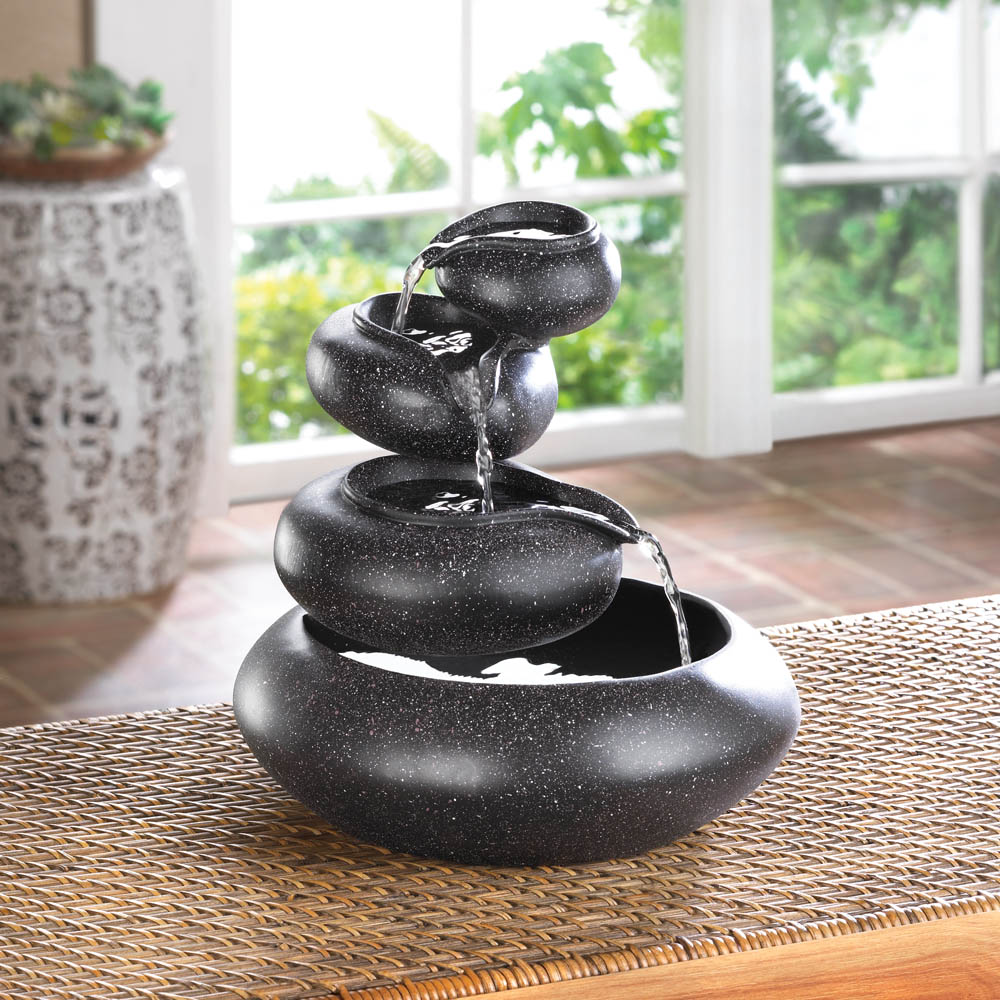
The fountain will undoubtedly become the pearl of your interior. Regardless of the size and complexity of the design, this decorative element will make your home more cozy and comfortable.

